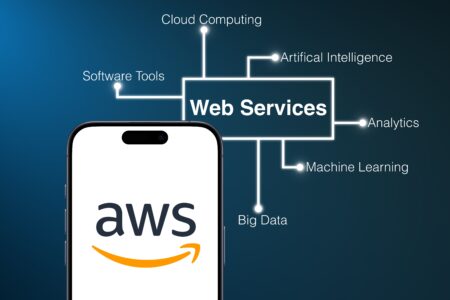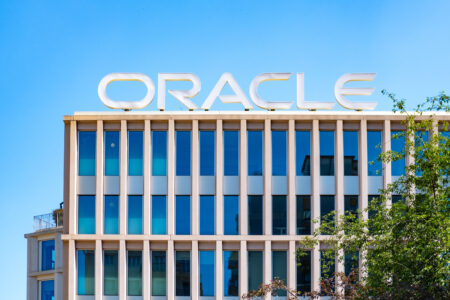Since taking over as CEO at Google Cloud in January 2019, Thomas Kurian has relentlessly exhorted his company to complement its superb technology with a deep sense of empathy for customers’ problems and their aspirations.
Driving that type of cultural change is enormously challenging in any environment, and particularly so in an organization as large as Google and with an intensely engineering-driven culture such as Google’s.
So has Kurian’s message gotten through?
Check out this perspective from Macy’s CTO Naveen Krishna. “I’ve always known Google Cloud has great technology and engineering muscle,” Krishna said via email, “but had not seen them address the needs & expectations to serve large enterprises like many of the enterprise-first software & cloud companies did.”
“TK [Kurian’s nickname] has come in and instantly taken this gap head-on to build an enterprise-focused customer-support and go-to-market function that is showing up with a lot more Google engineers to partner with customers, more-specialized solutions for industries, and deeper views into product roadmaps.”
And in today’s high-change business environment, Krishna said, the value of such commitment is simply out of this world.
“Having an enterprise-first mindset coupled with Google engineering talent is nirvana for enterprise technologists.”
That unqualified endorsement from the CTO of Macy’s captures the essence of two enormous achievements Kurian has delivered in his first year as CEO of Google Cloud:
- inside the company, Kurian has changed the culture to one that puts the customer first and at the center of everything the company does, without diminishing the company’s unqualified commitment to engineering innovation and excellence; and
- outside Google Cloud, Kurian has begun convincing more and more customers that the company is fully and unconditionally committed to the success of the enterprises trusting Google Cloud to help them modernize how they do business so they can thrive in the emerging digital economy.
And those achievements are the primary factors behind my decision to choose Google Cloud’s Thomas Kurian as the Cloud Wars CEO of the Year for 2019.
CEO of the Year Thomas Kurian: in His Words
In an interview last week at Google Cloud headquarters in Sunnyvale, Kurian spoke of the need to blend expertise with empathy as he cited the great foundation built by his predecessor, Diane Greene. (Watch my full video interview with Kurian here.)

“Diane, to her credit, put in place a great technology foundation. We’ve always had a great heritage at Google in building great products,” Kurian said.
“But the things that we’ve changed this year are really putting the customer first. We start with the customer. We want to be the best organization in terms of understanding their needs, providing them the product capability to solve those needs, bring the expertise that we have.”
All the high-minded advanced-technology expertise in the world is of zero value unless it can be applied to the specific and always-imperfect reality businesses today must deal with: a mix of legacy systems and new cloud services, data silos, organizational complexities, and some legacy processes as well.
So for Google Cloud, 2019 was all about fusing that expertise with empathy to earn the trust of customers betting not just their careers but often their companies on the tech vendors they choose.
Kurian on Combining Expertise and Empathy
“That expertise has to be matched with empathy with what customers are facing,” Kurian said. “And we need the combination of those two: the expertise we have on products and technology blended with a deep appreciation of what’s the problem they’re trying to solve.”
Kurian went on to say that the company’s been “extraordinarily fortunate” in making that fusion come alive in 2019, but I don’t think good fortune or luck had anything to do with it. This, too, is part of Kurian’s powerful leadership style: quiet and understated on the surface but underpinned with steely determination.
No, if there was anything “extraordinarily fortunate” about this remarkable evolution at Google Cloud in 2019, it was that the leaders of Google and Alphabet understood that Thomas Kurian was the right person at the right time to help Google Cloud undertake this customer-first transformation by pushing empathy into the equation with expertise.
“It’s definitely that combination. And to be honest with you, we’ve been extraordinarily fortunate because our Googlers have really stepped forward,” Kurian said.
“They embrace that—they understand that that’s what’s important. They enjoy working with customers, and it’s been a real pleasure to watch and a privilege to watch our organization mature that way.”
Google Cloud’s “Business-Optimized Solutions”
For customers, that sense of a personalized approach and set of solutions attuned to their specific needs can help create the sense of awareness and confidence that can lead to breakthrough outcomes.
Constellation Research CEO Ray Wang summed up the Google Cloud CEO’s sweeping approach as such: “Thomas is helping clients translate enterprise inside Google. That means real product roadmaps with deadlines, true customer success management, real BD and enterprise class partnerships, and enterprise sales teams that work with the customer.”
And recall how Macy’s CTO Krishna described it: “an enterprise-focused customer-support and go-to-market function that is showing up with a lot more Google engineers to partner with customers, more-specialized solutions for industries, and deeper views into product roadmaps.”
Or as Kurian described it, “We want to enable organizations to be bold and to be brave in accepting the technology change by being a partner with them and providing them with the right solutions so that in the face of this exhilarating change they don’t freeze and feel afraid of embracing the technology.”
During our 25-minute conversation, Kurian touched on how some of those “exhilarating changes” are playing out for companies in retail, financial services, logistics and other industries.
Rather than trying to compete head-on with well-established enterprise-applications providers in ERP, CRM and HCM, Google Cloud is instead looking to use its expertise in data, analytics, ML and AI to transform the data created within those business-process apps into high-impact solutions for those types of daunting business challenges.
It’s a new type of software that Kurian described as “business-optimization solutions.”
“CEOs are looking at new technologies as solutions to problems. If they look at, for example, retail, they ask, ‘How can I do one-day shipping? How can I help people order at home and pick up at the store? How do I do inventory planning better?’
“If you’re talking to financial institutions, are there better solutions to do fraud detection, anti-money laundering? If you talk to logistics and manufacturing companies, how can I optimize the location of my fleet? How can I save money doing that better? How can I do scheduling better?” Kurian said.
“We’re building business-optimization solutions that allow you to take data out of the application, add more sophistication to it, and then improve your organization’s financial performance as a result.”
Kurian and Google Cloud Transcending Old Categories
Google Cloud’s already making significant headway across some huge vertical markets, and Kurian offered specific examples around using AI for demand-planning optimization and also for anti-money-laundering solutions.
This is breakthrough territory for Google Cloud: getting into the enterprise-apps business not with broad horizontal business-process applications such as ERP, but rather with data- and analytics-intensive solutions that transcend traditional enterprise apps.
“We’ve done work with many, many of the top retailers in the world around supply chain, inventory planning, and optimization. There’s a lot of desire to improve product cycles—this notion of fast retailing—by being able to have faster product cycles.
“But there’s many, many more points in which you’re maintaining inventory because of your stores becoming points of inventory. And then the demand-planning process that ties many more SKUs which have shorter life cycles with many more points of inventory can lead to an extraordinarily expensive cost of inventory,” Kurian explained.
“So we tell customers, ‘Don’t replace your current supply-chain planning systems. Keep them as-is. But extract the data from that, put it into our analytics and machine-learning platform, and we’ll build you a much more accurate and more sophisticated demand-planning solution.”
In financial services, efforts to stifle money laundering have been hampered by a high percentage of false-positives because current solutions are rules-based, and one things that money launderers definitely do not do is follow rules.
“Rather than have a static rule set, we build a more dynamically evolving neural network-based solution to detect fraud. You don’t have to replace your core banking systems or your KYC [know-your-customer] systems. You use this as a more sophisticated way of detecting fraud,” Kurian said.
“So our aspirations certainly are to provide solutions and to move up the value chain but not to build process-centric applications—rather, to become what we call the business-optimization engine.”
It’s a plan that plays directly to the strengths of Google Cloud as well as Google the parent company: enabling customers to take data out of applications, add significant levels of sophistication—including analytics and AI to it—and thereby unlock new levels of performance across the organization.
Cloud Wars Interview with CEO of the Year Thomas Kurian: Coming Wednesday
You can hear more strategic insights from CEO of the Year Thomas Kurian by watching our video interview on these and other subjects:
- Enabling great customer experiences
- How Kurian drove strategic cultural change at Google Cloud throughout 2019
- New and vital expectations that customers have regarding the cloud
- Helping customers harness the power of ML and AI
- Big Blur: the tear-down of walls between “front office” and “back office”; and
- Creating dynamic and strategic partner ecosystems.

Closing Thoughts
In just his first year atop Google Cloud, Kurian has helped fashion a cloud powerhouse that has not only all of the requisite capabilities of a world-class vendor but also leading skills and technologies in ML, AI, analytics, cybersecurity, hybrid cloud and more.
But his breakthrough achievement has been in harnessing that massive set of assets—plus others from across Google—to do not only great engineering, but to dazzle and delight customers facing truly existential and time-sensitive challenges.
“Part of this notion of empathy and customer-centricity is recognizing what aspirations the customer would have. And what’s the best solution to supporting them to reach that aspiration?” he said.
Expertise plus empathy unleashes customer aspiration. And innovation. And success.
That’s pretty close to the formula Thomas Kurian has deployed in pushing Google Cloud into the top tier of the viciously competitive enterprise-tech space in just 11 months.
And it’s the formula that’s made him the CEO of the Year for 2019 in the Cloud
RECOMMENDED READING
Cloud Wars CEO of the Year: Thomas Kurian of Google Cloud | Our Interview
Top 3 Tech Battles in 2020: Microsoft vs. Google, Salesforce vs. SAP, Amazon vs. Oracle
Watch Out, Microsoft and Amazon: Google Cloud CEO Thomas Kurian Plans To Be #1
Inside Google Cloud’s Resurgence: 10 Key Messages from CEO Thomas Kurian
Google ‘Anthos’ and New CEO Turn Up the Heat On Microsoft and Amazon
Why Google Cloud Extended Partnership with VMware: The Thomas Kurian Effect
Google Jumps to #6 behind #1 Microsoft, #2 Amazon, #3 Salesforce, #4 SAP, #5 Oracle
Inside Google Cloud’s Breakout $2B Quarter: 10 Key Insights
Can Google Cloud Beat Microsoft? Could Salesforce + IBM? Or Amazon + SAP?
Arms Race in the Cloud: Google, IBM, Salesforce, SAP Lock In on Data
Inside Google Cloud’s Strategy: Helping Customers Achieve the Unachievable
Who’s Top CEO: Salesforce’s Benioff? Oracle’s Ellison? Google’s Kurian? Or??
Disclosure: at the time of this writing, Google Cloud was a client of Evans Strategic Communications LLC and Cloud Wars Media LLC.
Subscribe to the Cloud Wars Newsletter for in-depth analysis of the major cloud vendors from the perspective of business customers. It’s free, it’s exclusive, and it’s great!







